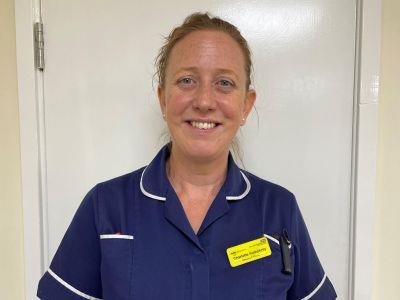Associate Principal Investigators scheme: “I would absolutely recommend it!”

The Associate Principal Investigators (PI) scheme is a six month in-work training opportunity, providing practical experience for health and care professionals starting their research career.
People who would not normally have the opportunity to take part in research in their day-to-day role have the chance to experience what it means to work on and deliver an NIHR portfolio trial under the mentorship of an enthusiastic Local Principal Investigator (PI).
Katie and Charlotte explain more about the scheme and why they would recommend it to others.
Meet Dr Katie Preston
Dr Katie Preston, Anaesthetic & ICM Registrar at University Hospitals Dorset, took part in the Associate PI Scheme.

“My day to day role involves anaesthetising people for operations in theatre and looking after people in intensive care. I work under the supervision of a consultant but also supervise more junior doctors.
I have an interest in research but as a rotating junior doctor it can be difficult to know where to start before moving hospitals again. The Associate PI scheme was very helpful to advertise studies that I could become involved with and provided a framework for my learning.
I worked on the AIRWAYS-3 study which is looking into airway management during in-hospital cardiac arrests.
As an Associate PI I helped set up the AIRWAYS-3 trial in my hospital, working closely with the PI and lead research nurse. I helped advertise the study locally and provided a useful link between the permanent research staff and rotating anaesthetic trainees. This was especially helpful as anaesthetic trainees have been valuable at randomising patients into this study. I attended Associate PI meetings put on by AIRWAYS-3 to update me on trial protocol changes and challenges other sites have faced. Meeting with the lead research nurse and PI regularly has allowed me to understand better the process of governance that is required when undertaking research. In addition some of the NIHR elearning modules have provided a good background on the set up of research in the UK.
The Associate PI scheme gives me formal recognition of my involvement in research which is useful for my CV and applying for jobs in the future. I would like to be a PI in future and think this will stand me in good stead.
I would recommend the Associate PI scheme - it provides a good introduction to research, with a clear framework to follow during the six months and provides recognition of your involvement. It was easy to apply - I just needed the backing of the PI and an email address.”
Meet Charlotte Humphrey
Charlotte Humphrey, Research Nurse, was part of the study team that worked alongside Katie.

“Both the AIRWAYS-3 study and POPPY study involved Katie, the Associate PI. She was involved from the outset. She came and met with the research nurses to gain a better understanding of how we conduct feasibility and set realistic recruitment targets. We then looked at how we set up the trial from a practical point of view, working through each stage of the study from making sure clinical areas are aware, screening, confirmation of eligibility, how we approach the consent process and how to manage follow-up.
Katie was engaged from the beginning, keen to learn about research and also share clinical knowledge and insight of how the clinical team operates in order to integrate the studies into everyday practice. The insight she was able to provide was invaluable. It helped streamline how we ran these trials and how we would improve the delivery of future trials. It was also helpful to have a member of the clinical team to raise the research profile with their colleagues and reinforce the importance and value of engaging with trials and collaborative working alongside the research team to continue the integration of research into everyday practice.
I would absolutely recommend the Associate PI scheme to others. Through supporting clinicians in their early research journey, it means they are getting access to our research expertise and they can continue to support our integration into the team. It is brilliant for collaborative working.”
The Associate PI Scheme is not only good for trainees, but also for the studies themselves
Both the AIRWAYS-3 and POPPY studies performed really well at the University Hospitals Dorset NHS Foundation Trust sites, where Katie took part in the scheme. Not only did the teams meet their recruitment target, they actually over-recruited in both studies. A recent analysis of the Associate PI Scheme showed that sites with at least one Associate PI recruited over 3.5 times more patients than sites without an API (J.Newman et al, 2024).
For more information about the scheme, take a look at the NIHR Associate PI scheme webpage



